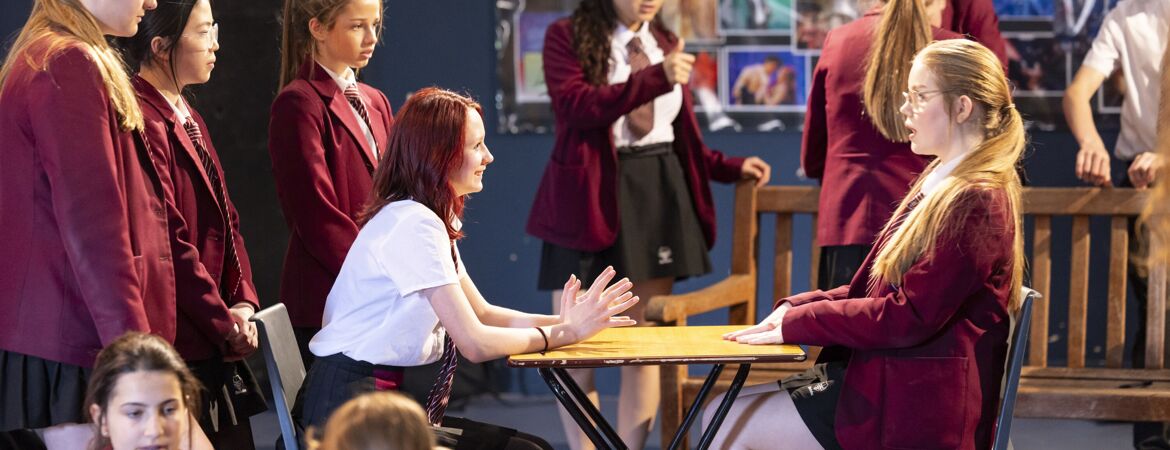Child Development
The Aims of the Department
This most interesting and rewarding course is not only an excellent and very necessary training in understanding every aspect of parenthood within our society but it also prepares you for the immense task of caring for children, whether your own, or in preparation for a future career. The course can lead directly onto many other interesting and exciting opportunities :
- Vocational courses such as: Early Learning, Health and Social Care and Society Health and Development.
- A-Levels such as Sociology and Psychology.
- The course gives you an insight into any profession involving children such as child minding, social work, working in a nursery or a pre-school and teaching in general.
Facilities
We have excellent facilities for teaching this course including a Virtual Baby that students are invited to take home for the weekend, bottle feeding equipment, toys and children's books.
Useful Links
Course Details
KS4 Child Development
Board and Exam Details
OCR Cambridge Nationals in Child Development Level 2
Course Content
Parenthood
- Factors effecting having children
- Pre-conception health
- Contraception
- Reproduction
- Symptoms of pregnancy
Antenatal Care
- Role of professionals
- Routine checks
- Screening and diagnostic checks
- Labour
Postnatal provision
- Postnatal checks
- Pre-term babies
- Provision
- Conditions for development
Childhood illnesses
- Immunity
- Treatment
- Needs of a child
- Hospital
Child Safety
- Creating a safe environment
- Safety labels
- Accidents
- Safety
What skills students develop
There are interesting practical tasks such as making up a formula feed, making a baby’s first meals, testing nappy brands, making playdough and cheerio necklaces, all of which will reinforce your understanding.
Child Development lessons give you opportunities to discuss some of the very sensitive and relevant issues that surround children and parents. We will watch relevant documentaries and have interesting debates. You will have the opportunity to have a ‘virtual baby’ for a weekend. This registers electronically how you respond to the demands of a baby and will give you a computer generated ‘result’ on how well you met the needs of the child. This print-out can be used in your portfolio as evidence for interviews for Further Education Colleges etc.
How students are assessed
For this OCR course you will have 5 hours of teaching every two weeks. You will have one exam unit and two coursework units.
The course is made up of three elements:
- Written examination (50%)
- In Unit 2 (25%), students will gain knowledge of the equipment needs of babies and young children and an understanding of the factors to be considered when choosing appropriate equipment to meet all of these needs. They will also gain knowledge of nutrition and hygiene practices and will be given the opportunity to evaluate dietary choices. Evaluation skills are transferable skills which would be of use in further studies in most areas.
- In Unit 3 (25%), students will gain knowledge of, and skills in, developing activities to observe development norms in children up to the age of five. This unit will include researching, planning, carrying out activities with children and observing and reviewing these activities, as well as an understanding of the development norms and the benefits of play in child development. These transferable skills will support further studies in many other subjects.
What makes a good Child Development student?
- Enthusiasm and commitment to the course.
- Consideration towards the feelings of others as many topics we discuss may be sensitive to you and others in the group.
- Keeping your classwork and homework up to date.
- Being aware of Child Development issues in the news — finding articles and stories relevant to the course and enjoying discussions on these matters.
- Being organised and proactive with your two coursework tasks.
Homework
Homework will be varied and will consist of research, interviews with friends and family, researching products and on-going visits and observations to support your course work.
How parents can help
Parents can assist by involving students with childcare arrangements. Perhaps students could babysit for friends and relatives under parental supervision. Students will need to study a child as part of their coursework, so help would be appreciated in finding a suitable child to study and to help arrange observations over a period of six months.



